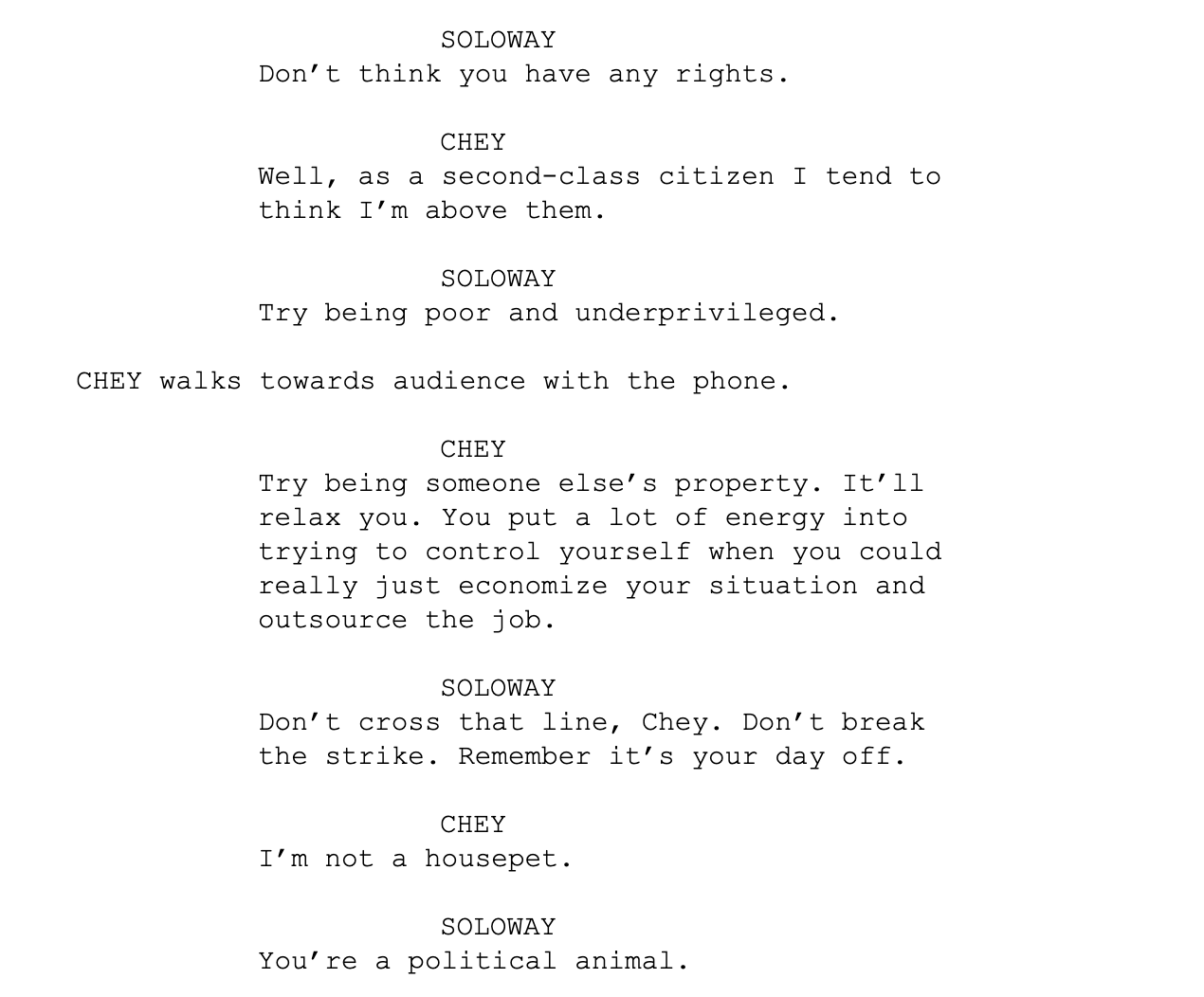Hamster Machine
Curated by Nick Faust
Written and performed with Victoria Campbell
2016
Fake news is a critical actuality. Getting off is a crisis of consciousness. Social activism or generalized hysteria? Two women lobbying for a captain, unable to reckon with the idea that they might indeed be the ship.
HAMSTERMACHINE is a two-woman, four-act artist’s play whose critical framework lies somewhere between clowning and a bastardized Brechtian epic. Taking place against the political crises of early 2017, HAMSTERMACHINE centers around a series of unusual events. The play borrows its dialogue from the political terminologies offered up by the online communities of the Alt-Right and attempts to bridge a dangerous new patriarchal consciousness with the mainstream, liberal mindset of the girl next door.
As Chey and Soloway spiral into an ontological crises, it becomes hilariously clear that the political conflict is not between Left and Right, men and women, privileged and underprivileged, but a social contract between audiences and actors-- in other words, an embodiment of circumstance.
HAMSTERMACHINE is a social performance in content and context. The play’s title is a mashup reference to Heiner Meuller (nee Brecht’s postmodern epic- HAMLETMACHINE, in which historical crisis is restaged as a crisis of masculine identity-- and the term “hamster,” a derogatory term used on reddit for a woman who thinks too much. In 1979, Hamlet “lugs his overweight brain like a hunchback”; in 2017, “her head is a cage with a wheel in it.” In both cases, “it’s the worst time of year for a revolution.”
Written into stage direction is the rule that each character takes her name from the individual actor’s maternal lineage. We leave this work open to be reperformed by anyone with a maternal name- actors or non-actors, women or men, those of either dubious political orientation or ambiguous origin. This is a throwback to the struggles of our mother’s generation and a playful slippage between “actor” and “political actor.” Leaving open the question of whether or not, should identities shift, would our roles remain the same?
HAMSTERMACHINE is a two-woman, four-act artist’s play whose critical framework lies somewhere between clowning and a bastardized Brechtian epic. Taking place against the political crises of early 2017, HAMSTERMACHINE centers around a series of unusual events. The play borrows its dialogue from the political terminologies offered up by the online communities of the Alt-Right and attempts to bridge a dangerous new patriarchal consciousness with the mainstream, liberal mindset of the girl next door.
As Chey and Soloway spiral into an ontological crises, it becomes hilariously clear that the political conflict is not between Left and Right, men and women, privileged and underprivileged, but a social contract between audiences and actors-- in other words, an embodiment of circumstance.
HAMSTERMACHINE is a social performance in content and context. The play’s title is a mashup reference to Heiner Meuller (nee Brecht’s postmodern epic- HAMLETMACHINE, in which historical crisis is restaged as a crisis of masculine identity-- and the term “hamster,” a derogatory term used on reddit for a woman who thinks too much. In 1979, Hamlet “lugs his overweight brain like a hunchback”; in 2017, “her head is a cage with a wheel in it.” In both cases, “it’s the worst time of year for a revolution.”
Written into stage direction is the rule that each character takes her name from the individual actor’s maternal lineage. We leave this work open to be reperformed by anyone with a maternal name- actors or non-actors, women or men, those of either dubious political orientation or ambiguous origin. This is a throwback to the struggles of our mother’s generation and a playful slippage between “actor” and “political actor.” Leaving open the question of whether or not, should identities shift, would our roles remain the same?

